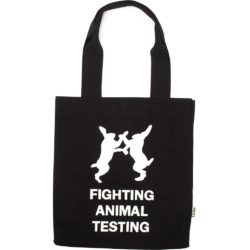The cosmetics market continues to grow from strength to strength, both financially and sustainably, as businesses discover and move into new pockets of the market. Over the last decade, consumers have slowly grown more aware of their impact on the environment.
Unfortunately, the beauty and personal care industry does produce a lot of carbon emissions. This is something that Lush Cosmetics have worked to combat, turning their packaging and printed bags into a political movement, marketing technological, financial and all-round ethical decision.
Lush Cosmetics are a British beauty company that sell bath bombs, soaps, make up and so much more! However, one of their USPs is that most of their products are artisan or homemade products and they regularly introduce seasonal products and special edition items. The giant turns over more than £900 million annually and benefits from some awesome brand recognition and prime store locations.
Since their outset, Lush Cosmetics have had strong beliefs towards political and ethical concerns, including animal testing and the environment. The brand is still committed to being more sustainable the more they grow, as such in recent years they announced that they will be making moves towards ‘naked’ packaging.
The brand still uses bottles and containers where necessary to sell their products to customers, but they ensure they use recycled materials and only use product packaging where absolutely necessary, i.e. in the case of a liquid. Their attitude is that a bath bomb does not need a plastic coating surrounding it, it is a self-contained item, Lush have simply decided to “cut the wrap”.
THE PRACTICALITY ISSUE
Lush’s mission to be more carbon conscious and cut the packaging from their products is certainly noble but it does also present it’s challenges. This might be why this is not a universal or more wide-spread idea, but Lush did not let it deter them. The first issue is combatting how customers will transport items and how the company can ensure wastage and customer opinion does not change as a result of unsecured items or insufficient protection for goods. The secondary issue at hand is that without packaging or even stickers, how were shops supposed to swipe a bar code?
TECHNOLOGY TO SAVE THE WORLD
To combat the issue of swiping a bar code, Lush Cosmetics developed an app. Both consumers and staff download an app called #LushLab. This is a database that uses a smartphone camera to recognise products. The app can tell the customer all the information you would find on standard packaging, actually it can tell you more, including a comprehensive list of ingredients and products it would work well with, how to use instructions and the product price.
The interesting thing about this is that Lush’s products are notoriously aesthetic; they are always colourful, bright and are sometime made into special moulds and shapes. As product packaging is typically the most informative, removing this layer does allow the item to stand for itself, unencumbered and uninterrupted by text. When we shop with our eyes, this is could be considered a very tactical move and an innovative way of meeting customer requirements whilst continuing to appeal to more people!
To manage the issue of protective packaging, Lush cosmetics had to decide which items could handle being incorporated into their naked range. For example, bath bombs have quite a protective shell and were a good product to begin with. As one of the cosmetic companies’ key items, this would also have the desired effect on reducing their carbon emissions. To ensure they continued to meet customers’ requirements though, it was imperative that Lush devise a solution for transportation after the sale.

LUSH COSMETICS SOLUTIONS
Developing an eco-friendly and sustainable solution for printed bags is not hard, and Lush stuck with a tried and true method. You can find canvas bags available for sale at the check out of each store. Customers are invited to buy printed cotton bags, made from 100% organic materials. Many of the designs for these bags are completely free of branding, with the thinking that a non-branded bag could encourage consumers to re-use the bag and take it out with them again and again.
In fact, Lush produced some printed bags that promoted their stance on a social or environmental issue, such as their ‘stop animal testing bag’. This is quite strategic, as the simple black and white design is extremely effective in grabbing a reader’s attention which could help to boost the brand’s visibility. Moreover, it continues to establish a positive and ethical brand message for the company.
In store, you will also find printed paper bags, sporting leaf and flower designs that have a flat or twisted handle, to ensure they are fully recyclable. The products that are placed inside the bag can be (optionally) wrapped in a flat, brown paper bag. The company seemed to have stuck with the Kraft brown aesthetic to play on the eco-friendly and grass-roots marketing angle.
Lush have developed a fantastically successful way to reduce their carbon footprint all with the power of paper and printed bags, smart materials and innovation. Although Lush Cosmetics turned their ‘Naked’ packaging into a lucrative PR exercise, this might be partly due to their existing name recognition.
Here at The Printed Bag Shop, we support movements towards making your brand, and the world, a more sustainable place. It could even help you turn a greater profit.
Are there any ideas from Lush’s packaging strategy and ideas that you’re interested in? We’d love to hear!


